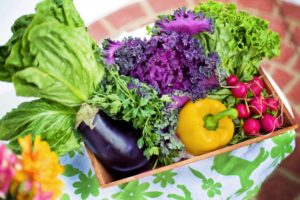
We have all had that moment walking past the organic section in the supermarket and wondered “is it really better for me?” only to have that thought swiftly shut down after seeing the price tag.
Products that have been certified as organic in Australia have been grown or manufactured free from synthetic pesticides, herbicides, hormones and antibiotics. This certification also ensures livestock are free range and pasture fed, seeds are not genetically modified and processes are biodiversity friendly and water efficient.
So is eating organic really better?
One of the common arguments for consuming organic produce is to avoid any nasty chemicals from pesticides used during farming. While standards for the use of pesticides vary around the world, the Food Standards Australia and New Zealand (FSANZ) set the legal limit of maximum reside in Australia to well below anything that could be considered a health and safety risk.
Some also suggest that organic products are more nutritious than non-organic, however the evidence on this is not conclusive. The nutritional content of food is determined by a number of factors, which include the use of fertilisers, organic or not, high temperature processing, such as in canning, or preparation of foods, such peeling the skins off fruit and vegetables. Even different cooking methods can have different effects on the nutrient value of foods.
There is some evidence to suggest that organic fruits contain more anti-oxidants, which can protect against the negative free radicals reactions in the body, though this is not the case for organic vegetables or cereals.
It is perhaps the lure of buying produce that is more environmentally sustainable that makes organic products more attractive. The major difference between production of organic and non-organic food lies in the use of water-soluble nitrogen and phosphorous fertiliser, which require fossil fuels to produce. This does give organic production an environmental tick, however can be at a trade off of organic farming requiring more land due to lower produce yields.
So what’s the verdict?
As much as we would love to give you a simple yes or no, the answer is – it’s up to you. Buying locally sourced, in season produce and eating a wide variety of fruits, vegetables and cereals is a good start to ensure you are getting all the nutrients your body needs.
For more details on whether organic food is worthwhile, click here.



